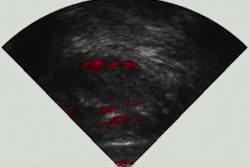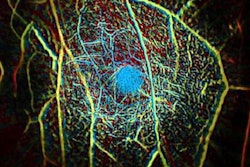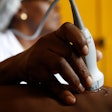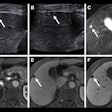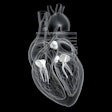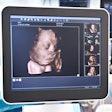
Researchers from Pennsylvania State University have been awarded a two-year, $900,000 grant from the U.S. National Institutes of Health's BRAIN Initiative to develop a prototype of a wearable photoacoustic scanner for the diagnosis and treatment of neurological conditions.
Photoacoustic imaging combines light and sound, sending near-infrared laser pulses into the brain and generating heat that converts to ultrasound waves, according to a statement released by the university. No contrast agent is necessary, according to principal investigator Yun Jing, PhD.
The prototype Jing and colleagues are developing wraps around the head and generates a sound signal that can penetrate the skull. The scanner could be used to identify injuries to the brain developmental disorders in both children and adults, and future versions of the device could be used with other parts of the body, such as the chest, to detect breast cancer, Jing said in the statement.





